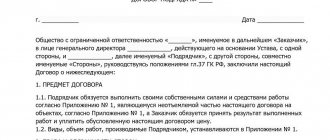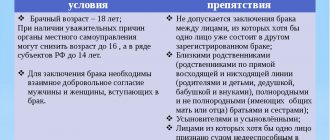What is it and how does it work
Endowment life insurance is a financial program, when applying for which the client immediately receives both insurance and an open deposit. To understand the working scheme of endowment life insurance (hereinafter referred to as CLI), it is enough to consider an example:
- An NJ agreement is drawn up for a period of 5 years. The deduction amount is 100 thousand rubles, paid by the client every 12 months.
- About 10–20% of annual contributions are sent to the insurance fund. This part of the accrual is called risk. It is not returned to the client at the end of the contract, as is the case with standard insurance. However, if the client gets into an insurance situation, he will be paid compensation. Its size depends on the size of contributions made during the term of the agreement.
- The remaining 80–90% is used by the company in which the client opened the NSZ for investment. This part of the deductions is called cumulative. The bank or insurance company distributes the income received from investments between itself and the investor. Thus, the owner of the NJ receives additional income.
- Over 5 years, the total amount of deductions made by a client of a bank or insurance company will be 500 thousand rubles. The owner is guaranteed to receive the savings portion – 80–90%, in this case up to 450 thousand rubles.
- The owner will also be able to receive additional income. For example, if the guaranteed income rate is 3% of the accumulative part of 90% (450 thousand rubles), at the end of the contract the owner will receive an additional 67.5.
In this example, the income from the NJ agreement turned out to be higher than the costs of risk payments. The difference was 67.5 - 50 = 17.5 thousand rubles. However, the bank's profit is not guaranteed. In some cases, the total amount of savings, taking into account interest, turns out to be lower than the total amount of deductions for the entire period of operation of the NJ. This should not be taken as a deception: endowment life insurance is aimed primarily not at making a profit, but at preserving savings, including in the event of the death of the deposit owner.
What is NSJ
First you need to get a general idea of what it is – endowment life insurance. Everyone knows what standard insurance is: you enter into an agreement with an insurance company and pay premiums (payments can be made either in one lump sum or in installments). If an insured event occurs, you will be paid the premium specified in the contract (policy). For life insurance, this event occurs when the insured person dies and the premium is paid to the beneficiary (such as a spouse or close relative). If during the period of validity of the contract the insured event did not occur, i.e. the insured citizen is alive and well, then the premiums he paid for the entire period are not returned, but become the company’s income.
The main difference between an insurance policy and a standard insurance contract is the guarantee of payment of all paid insurance premiums with interest if the person survives until the end of the policy.
In simple words, a citizen pays contributions, and the company invests them and at the same time provides insurance services. After a certain period, a person receives his money back with interest. In this case, you need to be aware of two more essential conditions:
- the NJ policy is issued for a period of at least 5 years;
- payments for the entire period must be made on time and in full. Otherwise, you may lose some of your money.
Guaranteed income
Dear readers!
Our articles talk about typical ways to resolve legal issues, but each case is unique. If you want to find out how to solve your particular problem, please contact the online consultant form
It's fast and free!
Or call us by phone (24/7):
If you want to find out how to solve your particular problem, call us by phone. It's fast and free!
+7 (495) 980-97-90(ext.589) Moscow,
Moscow region
+8 (812) 449-45-96(ext.928) St. Petersburg,
Leningrad region
+8 (800) 700-99-56 (ext. 590) Regions
(free call for all regions of Russia)
The endowment life insurance program provides for 2 types of income: guaranteed and invested income. Guaranteed, as the name implies, is the one that the client will receive in any case.
The fact is that the bank divides the client’s savings portion equally. For example, the cumulative part is 90%, then after division it turns out to be 45% and 45%. 45% are allocated to long-term investment programs with guaranteed profit. The bank can invest another 45% at its discretion, including in companies that cannot guarantee income from investments. The first 45% invested in stable companies provides a guaranteed income, the second 45% is invested.
The advantage of guaranteed income is that the client receives it in any case. The annual guaranteed income rate is 3-4%. This figure allows you to keep pace with inflation, which in Russia ranges from 3% to 5% per year. Interest on the guaranteed income will be accrued to the client after the expiration of the contract, unless an insured event occurs.
What else to read:
- Tick bite insurance in 2021
- Compulsory medical insurance: what it is, what services it includes, how to get it
- What is VHI in medicine: in simple words about the complex
Alternatives to endowment life insurance
Bank deposits are the most popular savings tool among Russians. The yield on them is low (within the percentage of inflation), the contract period is usually short (from 1 to 3 years). A bank deposit can be replenished, with or without the ability to withdraw funds at any time.
If the deposit agreement provides for the possibility of making additional amounts, then the amount of these amounts and the frequency of their payment can be any.
If you want to accumulate an amount by a certain date, then bank deposits provide more favorable conditions than NJ policies. However, in order to deposit funds into a bank account, you must have a source of income.
Separately, it is necessary to consider the features of the NJ in the bank. Sometimes it is suggested to take out a life insurance policy when opening a deposit. The client has the opportunity to open a deposit under the following conditions:
- the bulk of the amount is deposited directly into a bank deposit;
- a smaller portion is invested in the ILI program.
Such programs are offered to clients with large amounts of funds. The NHI agreement is drawn up directly at the bank, but the counterparty is not the bank itself, but the insurance company (usually a subsidiary of the bank). Thus, the client draws up two contracts.
Sometimes, when opening a deposit, NSG provides a guaranteed return on the deposit. For example, if you make a standard deposit, the rate will be 5% per annum. And if you make a deposit with an NSW, and the amount allocated for insurance will be at least 30% of the total amount deposited, then an income of 10% will be accrued on the deposit.
Unfortunately, there are often cases of misleading clients. Banks, when opening deposits with private insurance, are agents of the insurance company, and employees receive a certain percentage from each concluded contract. Therefore, when signing an agreement, carefully read the terms: who is the counterparty and what is the procedure for depositing and withdrawing funds from the deposit. If you need a standard deposit, but the accumulative life insurance program is not relevant for you or you are not confident that you will be able to regularly make contributions over a long period of time, refuse this program. The manager must explain all the conditions and has no right to impose additional services. Opening and maintaining deposit accounts without any additional programs is a service provided by all commercial banks.
Invested income

The second half of the savings portion of the deposit generates invested income. The company does not guarantee that the client will receive this portion of the income. Perhaps a bank or insurer will invest in an unprofitable organization, and then the company, on the contrary, will be at a loss. However, this will not affect the client in any way: even if 40–45% of his savings portion “disappears” after an incorrect investment, the insurer will credit this amount back. But, of course, it won’t charge additional interest.
If the company's investment turns out to be successful, then in one year the owner of the deposit will be able to receive up to 10% profit. This is a good indicator, but you shouldn't count on it. It is better to focus on guaranteed income.
Programs
The applicant can take out an endowment life insurance policy for various needs. The most common are 2 types of private life insurance: with a pension program and with payment upon reaching a certain age.
Pension
A pension pension fund is an analogue of a funded pension formed in a private company. The client opens a deposit at any age before retirement, up to 30–40 years. For example, a man, due to the retirement age of 65 years, can apply for a pension NJ at the age of 25, a woman - at 20. It all depends on the maximum and minimum duration of the contract. The minimum duration is always 5 years, so men aged 61 and women aged 56 will no longer be able to make a deposit. The maximum varies depending on the organization, but can range from 30 to 40 years.
How the pension program works:
- The client makes contributions within a certain period established by the agreement. As with any other life insurance program, about 10-20% goes to life insurance, the rest accumulates.
- The client reaches retirement age. It is important to clarify that it may differ from 60 for women and 65 for men. For example, workers in heavy enterprises, police officers, and military personnel receive their pensions earlier. It is important to discuss this nuance with the insurer in advance: whether the company focuses on the national retirement age or on the actual start of receiving a pension.
- The company pays the client savings. They can be divided, for example, paid throughout life in equal parts, paid in equal parts over 5–10–15 years. Some pensioners prefer to withdraw the entire amount at once. The payment form is chosen by the client himself.
If the client dies before reaching retirement age, the entire funded portion, along with interest, will go to the person specified in the contract. This may not only be a direct heir.
In some pension programs, in addition to death, other risks are taken into account: loss of ability to work, disability. In these cases, the company also pays compensation.
Upon reaching a certain age
In this program, you can set a certain age of the client (with the condition that the duration of the contract will be at least 5 years). For example, at the age of 20 you can apply for a personal insurance certificate up to at least 25, at 30 – up to 35, etc.
After reaching the specified age, the company will pay the client the accumulative part under the NJ agreement with additional interest. The organization will keep the risky part for itself. If an insured event occurs, compensation will be paid, but the accumulative part will no longer be paid.
Once a certain age is reached, the program is especially beneficial for parents to take up. They can issue a residence permit for the following needs:
- The child reaches adulthood. It is assumed that at this age the teenager will have to pay for university. The funded part of the NSW agreement will help you cope with the sharply increased financial burden or even pay for your education in full.
- The child’s graduation from university (it is important to indicate not the year of graduation from the educational institution, but the age, for example, 22 or 24 years). In this case, the savings portion will be used to pay for the independent living of the offspring. He will be able to rent an apartment, buy a car or even his own home, depending on the size of his savings.
There may be other purposes for savings; the insurance company will not specify them. In the above cases, the NJ is issued in the name of the child, but if he is not yet 14 years old, the signatures are affixed by the parents. Until the age of 18, and by agreement longer, parents pay an insurance premium for their child.
A similar NSJ agreement can be drawn up for yourself. For example, you need to renew your car in 5 years and save up for a down payment on your mortgage.
Advantages
Endowment life insurance has the following positive aspects:
- a guarantee that even in the event of death or disability, the family or the heir chosen by the client will receive compensation;
- the contribution of the NJ cannot be sued in a divorce; it is not considered standard property;
- the deposit is not taxed;
- NSZ allows you to save for long-term needs (apartment, house, car, education), since the client cannot withdraw funds without losing interest, and the terms of the contract are very long.
Further advantages depend on the goals of opening the NJ. This program allows parents to set aside funds to provide for their children, and pensioners to receive a decent increase in their state pension.
What can you insure yourself against?

- After the death of the policyholder, the persons named in the policy (beneficiaries) will receive the agreed amount. An important point is that in the event of the death of the policyholder during the policy period, the beneficiary will receive the entire amount specified in the contract, even if the policyholder managed to make only one payment during his lifetime.
- You can also insure your health. There are several options here:
- onset of disability. If the client becomes disabled during the term of the contract with loss of ability to work, then the insurance company pays the remaining premiums for this person. Upon expiration of the policy, the client will receive the amount that was planned. To do this, when concluding a contract, the corresponding option must be enabled;
- injury. When an injury occurs, the insurance company allocates funds for treatment;
- lump sum disability payment;
- payment for treatment of various diseases, etc.
- The NSJ policy provides you with insurance against non-repayment of the planned amount. This is its main function.
Flaws
Obviously, the NSW has a number of disadvantages. The most important of them is low income, and in some cases, expenses. The guaranteed return of 3-4% is effectively zero due to inflation, and the need to pay the risk part can lead to losses of 10-20%.
Other disadvantages:
- the deposit cannot be replenished or reduced without losing interest;
- issued only for a long term;
- insurance premiums are quite large - either from 20 thousand per year, or a one-time payment from 500 thousand;
- The standard insured event is only death; you will have to pay extra to cover other risks.
Who is suitable and who is not suitable for NSJ

There are many pros and cons of NSJ. It cannot be said that the pros outweigh the cons; it all depends on the client’s goals. If it is important for him to insure his life, and accumulating funds is a secondary goal, then an NJV will be an ideal option. If you need to accumulate a large amount in the shortest possible time, then it is better to pay attention to annual deposits in banks at 7-8%, and not to NJ.
Individuals who are at risk of death or loss of ability to work should apply for a personal insurance policy. These are mostly pensioners. It is advisable for those who are the only breadwinner in the family to register a homeowner's certificate. In the event of death, this agreement will help provide for the family for some time through compensation. And, of course, savings are a bonus, so the program is worth paying attention to those who want to set aside funds for a large purchase, but in a few years.
Advantages and disadvantages of endowment life insurance (who is suitable, is it worth it)
Positive aspects of the NSJ:
- Guaranteed safety of savings. An NSJ policy will help you save money and refrain from spontaneous spending.
- Guarantee of accumulation of the required amount.
- Possibility of obtaining a tax deduction.
- Availability of insurance. No one is immune from accidents or illnesses. Of course, the policy will not return life and health, but it will compensate for expenses.
- Special status. Insurance payments for private insurance are not recognized as property under the Civil Code of the Russian Federation and are not subject to inheritance or division in case of divorce. These amounts cannot be recovered by court decision.
Flaws:
- Long term. This point can be considered both a plus and a minus. Inflation reduces the value of money, and you can terminate the contract early only with significant losses. At the same time, the conditions specified in the contract are valid for the entire period.
- Obligation to pay contributions regardless of income. If you have entered into an agreement and are obliged to pay several tens of thousands of dollars a year, please pay the required amount on time.
- Impossibility of early refund without loss.
- Minimum profitability. In conditions of inflation and long-term investing, low returns are a significant disadvantage.
So, NSZh is suitable for clients who:
- They have a safety net and have the goal of accumulating a decent amount over a long period of time.
- They adhere to a conservative investment strategy: they are not interested in receiving high income, but strive first and foremost to save their money.
- They are not ready or do not have time to manage their savings on their own.
- They are the only source of income in the family.
If you meet at least one of these categories, the option of registering an NJV is worth considering.
Separately, it is necessary to say about pension savings life insurance. Some companies offer this option: at the end of the NJ program, you can receive the entire amount at a time or in the amount and frequency determined by the terms of the contract. Such a program may be of interest to able-bodied middle-aged citizens who want to maintain a comfortable standard of living after retirement.
The cost of the policy and what it depends on
The cost of the NJ policy is determined individually. The numbers are large: from several tens of thousands for annual payments and from several hundred if we are talking about a one-time deduction.
To reduce the cost of the policy, it is recommended to choose a one-time payment type (from 500 thousand). A fairly profitable option is the annual calculation of the insurance premium (from 20 thousand). But monthly deductions for the client will result in additional expenses. The Company may impose additional fees on such payments.
NJ programs from TOP insurance companies
| SK | Peculiarities | Insurance cost | Payments |
| Alpha Insurance | – Three savings options; – There is no installment plan for mandatory payment; – Age: not older than 80 years; – Minimum insurance period: 10 years. | From 30,000 rub. per year or six months | Up to 12% per annum |
| Ingosstrakh | – Three savings options; – Age: not older than 75 years; – Insurance period: 5-35 years. | Calculated individually | From 1,000,000 rub. |
| RESO-Garantiya | – Six accumulation options; – Insurance period: 5-30 years. | From 3,000 rub. in year | From 1,000,000 rub. |
| Rosgosstrakh | – Four accumulation options; – Age: not older than 88 years; – Insurance period: 5-20 years. | From 50,000 rub. in year | Up to 300% of the insured amount |
| Sberbank | – The program is valid for 1 year with further extension; – For death as a result of a plane crash, the company pays an additional 1,000,000 rubles; – Issued using a passport. | From 900 to 4,500 rubles. | From 100,000 to 500,000 rubles, depending on the insurance program |
| Sogaz | – Unified NSW program; – Possibility of deferring the mandatory contribution; – Insurance period: 5-25 years. | From 5,000 rub. in year | Up to 1,000,000 rub. |
Also, you can use the online housing insurance selection form. The search form searches for a variety of offers from insurance companies. This makes it possible to choose the most profitable insurance option. So take advantage!
Types of endowment life insurance programs
NSL is a type of insurance consisting of a basic program and additional options that are included in the policy at the request of the policyholder.
The main program provides for two insurance cases:
- Survival until the end of the program. In this case, the policyholder personally receives the insured amount specified in the policy.
- Death of the insured person during the policy period. If this sad event occurs, the persons specified in the contract will receive the insurance premium in full.
Thus, the policyholder or his relatives will receive the entire capital in any scenario, which is the main advantage of the NJ.
Additional options can be selected from an extensive list depending on the client's preferences. Here you need to take into account such factors as the state of his health, the specifics of his work activity, the presence of dependents, etc. We list the main categories:
- Accidents (AC), incl. production:
- injury as a result of an accident;
- hospitalization and surgery as a result of NS;
- temporary incapacity for work and the onset of disability as a result of NS;
- death as a result of NS, etc.
- Disability groups 1 and 2:
- lump sum payment after the onset of disability;
- exemption from payment of contributions for disability.
- Deadly diseases. Upon receipt of a diagnosis of a life-threatening disease, the policyholder can expect a lump sum payment from the insurance company or payment for treatment.
Next, we will consider the answers to frequently asked questions about the NJ program.










